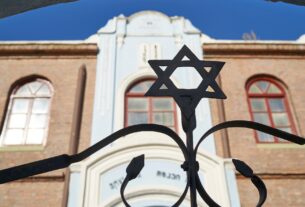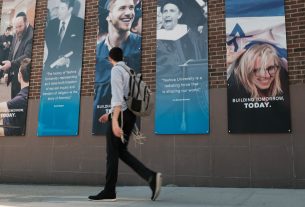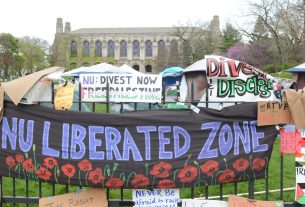((JEWISH REVIEW)) — A new HBO documentary dives into the successful effort to sue the white supremacists behind the deadly far-right rally in Charlottesville, Virginia in 2017.
“No Accident,” premiering Oct. 10, follows the attorneys Roberta Kaplan and Karen Dunn, who filed a lawsuit against 17 white nationalist leaders and organizations on behalf of nine plaintiffs who suffered physical and emotional injuries while peacefully staging a counterprotest of the rally, which was called “Unite the Right.” The lawsuit alleged that the rally was not a spontaneous gathering, but a coordinated conspiracy intended to incite racially-motivated violence.
The 17 defendants, including neo-Nazi and white supremacist Richard Spencer, were forced to pay more than $2 million in damages, plus nearly $5 million for the plaintiffs’ legal fees.
The film features interviews with and behind-the-scenes footage of the attorneys, their team, and six of the nine plaintiffs.
Amy Spitalnick, who served at the time as the executive director of Integrity First for America — the group that funded the lawsuit — appears in the documentary as well. Spitalnick, who now serves as the CEO of the Jewish Council for Public Affairs, said the lawsuit “had major financial and operational impacts on the defendants,” and has “emerged as a model” for holding extremists accountable via civil court.
“In the six years since Unite the Right, these white supremacist conspiracy theories have moved from the fringes into the mainstream of our politics and society, fueling a cycle of violence targeting communities across the country and around the globe,” Spitalnick said in a statement to the Jewish Telegraphic Agency.
“At the same time, we know that we can’t only sue our way out of this crisis,” she added. “Civil litigation is a crucial tool, but it must go hand-in-hand with a whole-of-society approach aimed at building democratic resiliency and preventing extremism in the first place.”
In the ruling ordering the defendants to pay the plaintiffs’ legal fees, Magistrate Joel Hoppe cited the “complex, expansive, and voluminous” research done by Kaplan and Dunn’s team.
“When Plaintiffs filed this lawsuit in October 2017, the world had seen and heard reports of the torch march, overtly racist and antisemitic chants, and violent clashes in Charlottesville a few months earlier. But ‘[t]he world had not yet seen or heard about the planning and coordination that enabled the conflagration’,” he wrote, quoting a filing from the plaintiffs.




